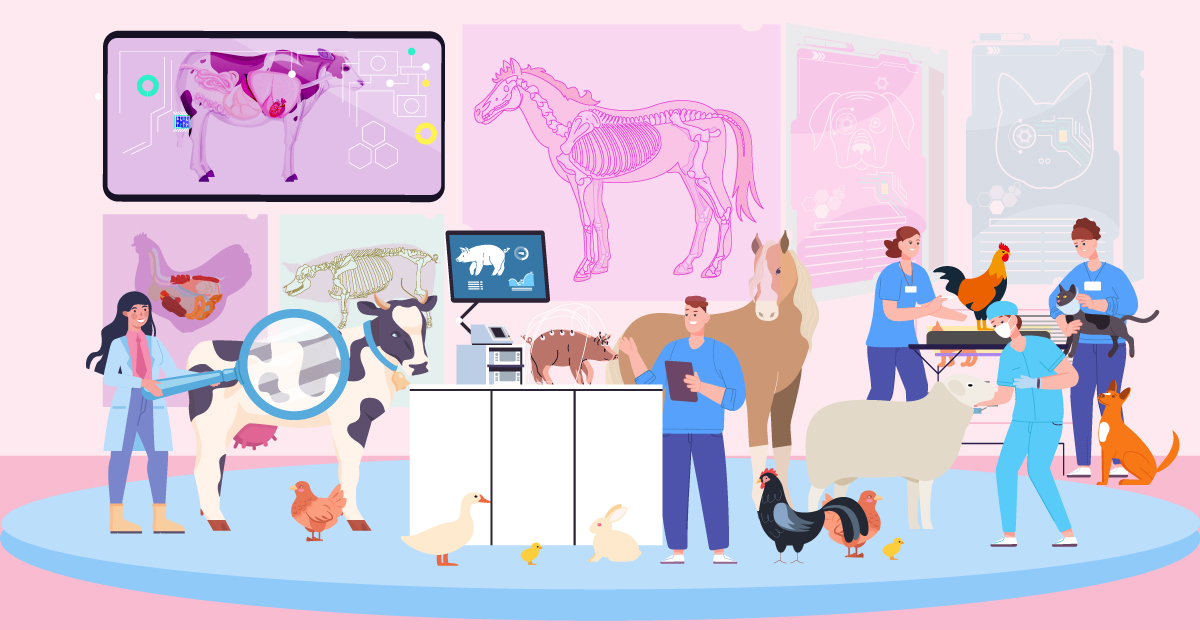- 2.3Impact Factor
- 3.5CiteScore
- 22 daysTime to First Decision
Exploring Innovative Approaches in Veterinary Health
Special Issue Information
Dear Colleagues,
Veterinary health is a rapidly evolving field that demands continuous innovation to address emerging challenges in animal disease prevention, diagnosis, and treatment. This Special Issue, “Exploring Innovative Approaches in Veterinary Health”, aims to highlight cutting-edge research and novel strategies that enhance veterinary practices, improve animal welfare, and contribute to public health. We welcome high-quality review articles and original research papers, as well as a limited number of case reports that provide valuable insights into innovative diagnostic, therapeutic, and management approaches. Topics of interest include advancements in diagnostic technologies, precision medicine in veterinary care, novel therapeutics, vaccine development, and integrative approaches to disease management. Additionally, we encourage research on the application of artificial intelligence, big data analytics, and digital tools in veterinary health. By fostering interdisciplinary collaboration and knowledge exchange, this Special Issue seeks to advance the veterinary profession and support sustainable animal health solutions.
Dr. Zhenbang Zhu
Dr. Zhendong Zhang
Guest Editors
Manuscript Submission Information
Manuscripts should be submitted online at www.mdpi.com by registering and logging in to this website. Once you are registered, click here to go to the submission form. Manuscripts can be submitted until the deadline. All submissions that pass pre-check are peer-reviewed. Accepted papers will be published continuously in the journal (as soon as accepted) and will be listed together on the special issue website. Research articles, review articles as well as short communications are invited. For planned papers, a title and short abstract (about 250 words) can be sent to the Editorial Office for assessment.
Submitted manuscripts should not have been published previously, nor be under consideration for publication elsewhere (except conference proceedings papers). All manuscripts are thoroughly refereed through a single-blind peer-review process. A guide for authors and other relevant information for submission of manuscripts is available on the Instructions for Authors page. Veterinary Sciences is an international peer-reviewed open access monthly journal published by MDPI.
Please visit the Instructions for Authors page before submitting a manuscript. The Article Processing Charge (APC) for publication in this open access journal is 2100 CHF (Swiss Francs). Submitted papers should be well formatted and use good English. Authors may use MDPI's English editing service prior to publication or during author revisions.
Keywords
- veterinary innovation
- animal disease diagnosis
- precision veterinary medicine
- novel therapeutics
- vaccine development
- digital veterinary health
- artificial intelligence in veterinary science
- big data in animal health
- one health approach
- sustainable veterinary solutions

Benefits of Publishing in a Special Issue
- Ease of navigation: Grouping papers by topic helps scholars navigate broad scope journals more efficiently.
- Greater discoverability: Special Issues support the reach and impact of scientific research. Articles in Special Issues are more discoverable and cited more frequently.
- Expansion of research network: Special Issues facilitate connections among authors, fostering scientific collaborations.
- External promotion: Articles in Special Issues are often promoted through the journal's social media, increasing their visibility.
- e-Book format: Special Issues with more than 10 articles can be published as dedicated e-books, ensuring wide and rapid dissemination.

